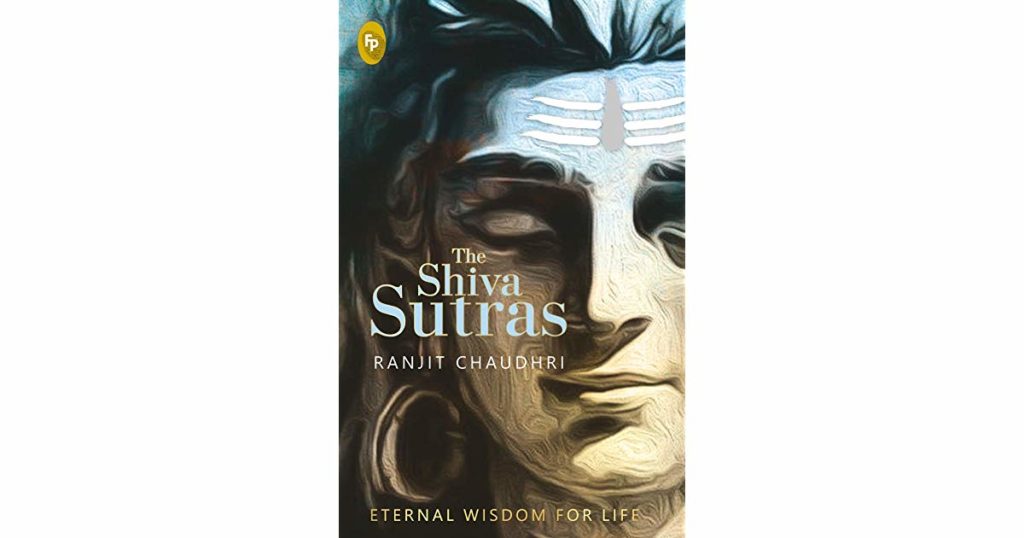Team L&M
In the introduction to The Shiva Sutras (Ranjit Chaudhri; Fingerprint; Rs 199; Pages 143), author Ranjit Chaudhri writes that these “are aphorisms which, as per the legend, were revealed by Lord Shiva to the sage Vasugupta in the eighth century AD. There are three versions of this came around. The first version says that Lord Shiva appeared to Vasugupta in a dream and revealed the Shiva Sutras to him. Another version says that an enlightened person revealed the sutras to Vasugupta. The third and most popular version is that Lord Shiva appealed to Vasugupta in a dream and instructed him to go to a particular stone piece. He was told that there was an esoteric teaching under the stone, and he was to study it and reveal it to those who are fit for grace.”
The author goes on to mention that once Vasugupta touched the stone, it turned over and revealed the inscriptions of the Shiva Sutras and once the sage had read them, it turned back over again. That it happened ever is debatable but the stone apparently still exists there and is called Shankarpal and is located in a water stream in Dachigam National Park, a few kilometres from Srinagar.
A few scholars in the region are of the opinion that the Shiva Sutras spread “the philosophy of Kashmir Shaivism in the region of Kashmir in the 8th century AD. Kashmir Shaivism was originally known as the Trika System. It is a form of yoga and tantra that is non-dualistic. Non-dualism teaches that there are not two, there is only One.”
The Shiva Sutras also addresses to questions like “If we are all One, then why do we appear separate? What is covering our real nature? How do we get to experience our true self? What causes us to continue in the path of worldly illusion, and how do we come out of it?”
Some scholars, Chaudhri mentions, consider the Shiva Sutras to be a little cryptic. Through the book, we also get to know that back in the 10th century Kshemaraja (philosopher who was a master of tantra, poetics, yoga and dramaturgy) penned a commentary on the Shiva Sutras, dividing the 77 sutras into three chapters. Although it is not mandatory to divide the sutras in three parts but the author has followed the same and promises “once you understand them and practice them, they will open a whole new world for you”.
While Removing The Veil (Chapter 1) has 22 of these sutras which talk about on how our true self is consciousness and that “the Sanskrit word atman is translated in two possible ways – soul and self.” It goes on to state in the first sutra, caitanyamatma, that “In Spiritualism, the Self and the Soul are the same thing. The Self is the witnessing self within us that observes all our actions. When we are in a state of awareness, we are a witness, and this witness is none other than our Self or our Soul.”
Then the other sutras explain how knowledge causes bondage (jnanam bandhah), how the origin of this group is the elements that cause identification with the body (yonivrgah kalasariram), how vigorous and continuous effort leads to god (udyamo bhairavah), how dream state is a variety of imaginings (svapno vikalpah), how the entire world is one’s own body (drysam sariram) and many more such sutras.
In Chapter Two, Detaching From The Body, the 10 sutras “hold an important message about the nature of the mind and body and the means to fulfilment.” It talks about how mantra stills the mind, how persevering effort leads to fulfilment, how the guru is the means, how the body is the sacrifice and how the knowledge is food to be consumed plus more.
Chapter Three, Awakening, is the longest them all and comprises 45 sutras. It talks about how the individual self is the mind, how supernatural powers are due to a veil drawn by delusion, how on practicing awareness of breath, there is an appearance of all being the same and has many, many more teachings like these which when one applies in life, leads to success and right direction.
